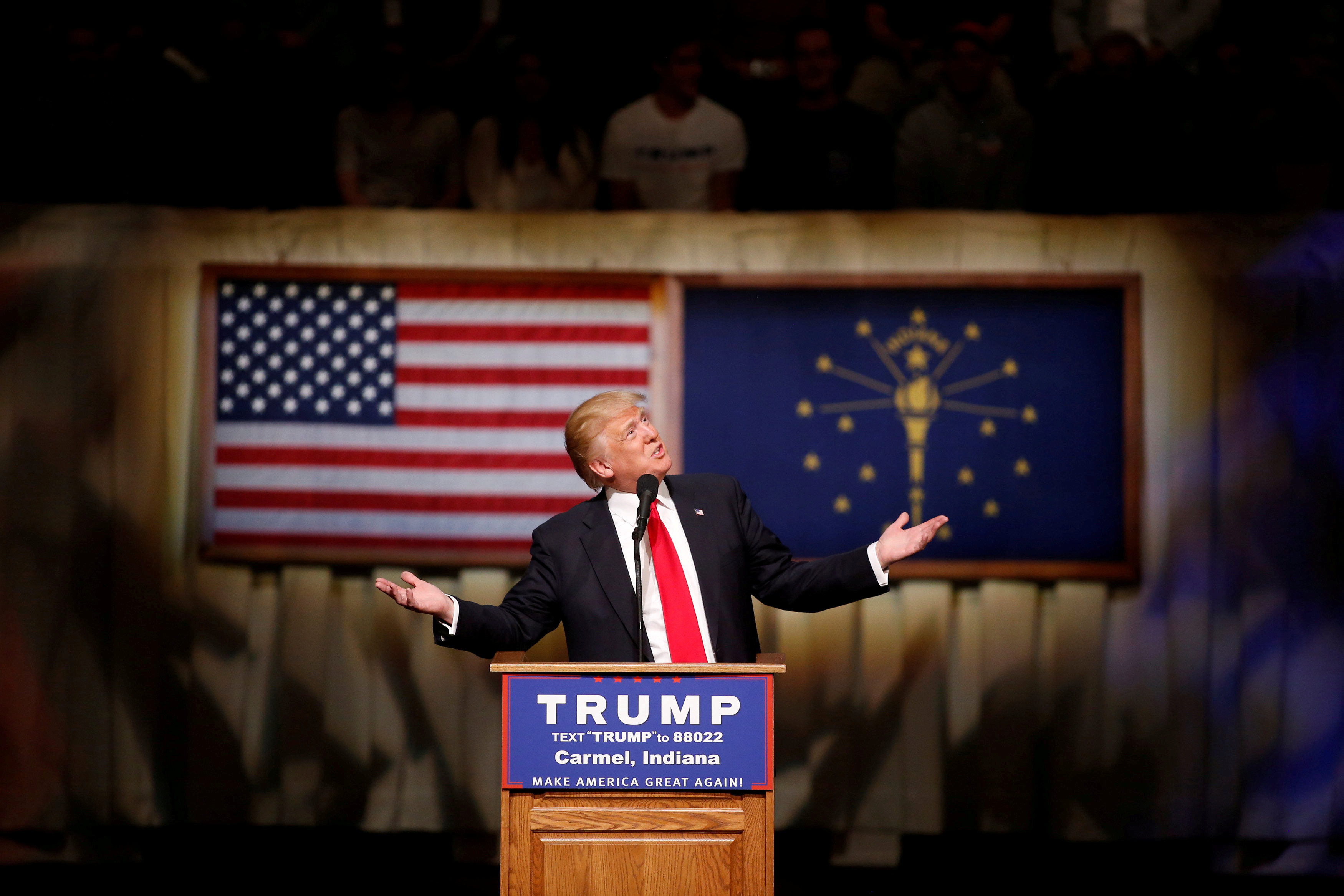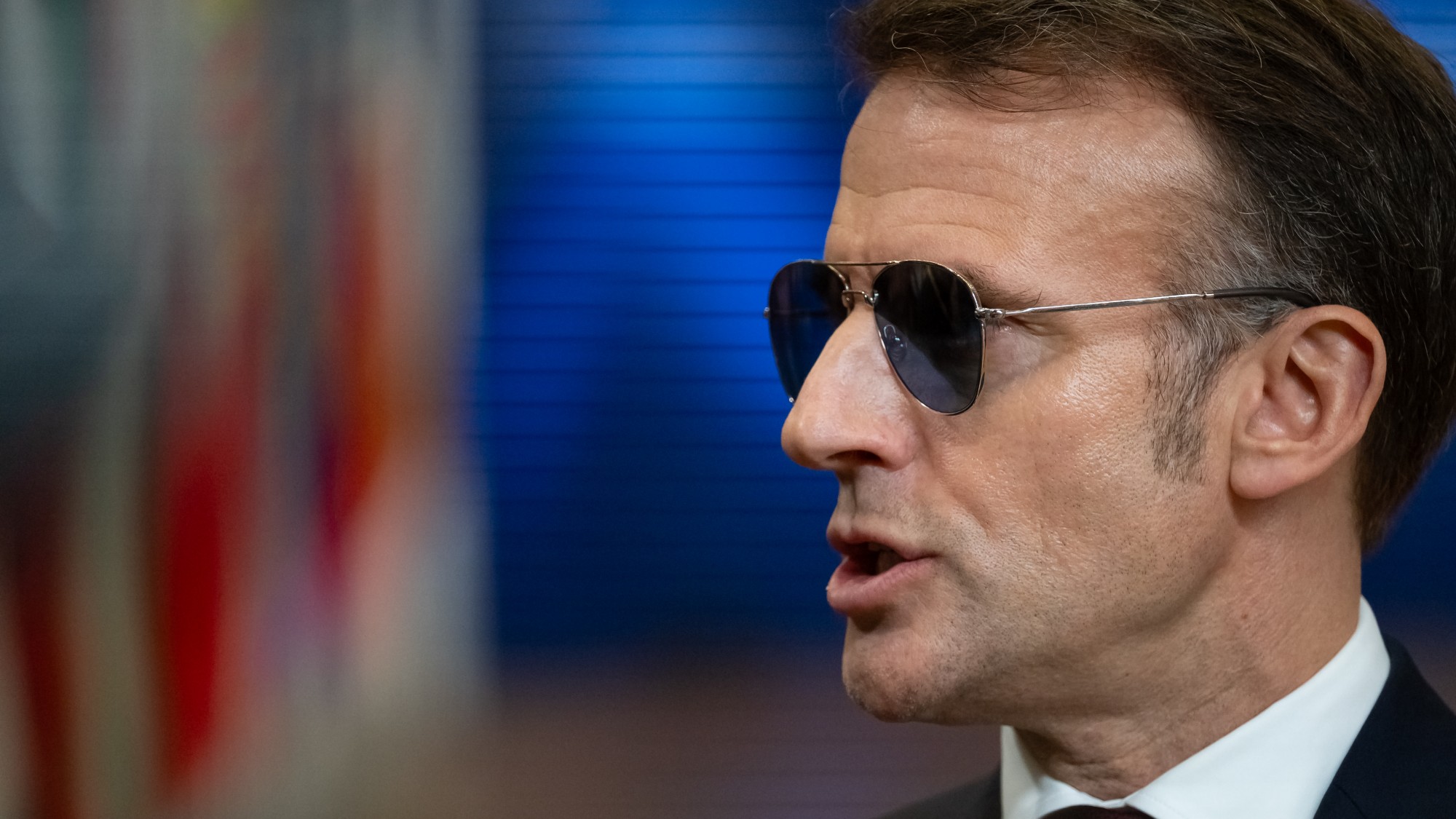How Donald Trump incited a political revolution
This wasn't a mix-up. This wasn't a hijacking. This is who Republican voters preferred.


Donald Trump is the presumptive Republican nominee for president. Let that sink in for a minute.
It's even semi-official: When Trump knocked rival Ted Cruz out of the race with a decisive victory in Tuesday's Indiana primary, Republican Party Chairman Reince Priebus tweeted his anointment of the billionaire.
Some pundits — especially those committed to the #NeverTrump movement — will downplay the significance of the political earthquake we've just lived through. They'll say it's unprecedentedly late for Trump to have reached this milestone, and that it's just a fluke that he managed to prevail at all. But they're wrong on both counts.
The Week
Escape your echo chamber. Get the facts behind the news, plus analysis from multiple perspectives.

Sign up for The Week's Free Newsletters
From our morning news briefing to a weekly Good News Newsletter, get the best of The Week delivered directly to your inbox.
From our morning news briefing to a weekly Good News Newsletter, get the best of The Week delivered directly to your inbox.
Permit me a brief excursion into (recent) history.
Four years ago, the Republican Party nominated the most mainstream option on offer: Mitt Romney. But the Republican National Committee didn't declare him the presumptive nominee until April 25. That's because Romney didn't surge decisively to the head of the pack until then.
Between the Iowa Caucuses on January 3 and Louisiana's vote on March 24, Rick Santorum won 11 states. (The same number that Ted Cruz carried this time around.) Romney's popular vote totals were also comparable to Trump's. If we exclude territories and bracket out states where Mitt served as governor (Massachusetts) and those with a high population of Mormons (the candidate's religion, the members of which supported him in overwhelming numbers), we find that Romney had won a little less than 40 percent of the vote as of April 3. (This compares with a little over 35 percent for Trump.)
Only after Santorum suspended his campaign on April 10 did Romney begin to win overwhelming majorities with any consistency. It was his impressive showing in the first vote following Santorum's departure from the race — the northeastern primary on April 24 (Connecticut, Delaware, New York, Pennsylvania, and Rhode Island) — that led the RNC finally to pronounce Romney the presumptive nominee. Only on May 29, when Romney won the Texas primary with a resounding 69 percent, did he finally reach that year's magic number of 1,144 delegates — one week before the California primary on June 5.
A free daily email with the biggest news stories of the day – and the best features from TheWeek.com
This time around Trump will likely hit 1,237 on the day of the California primary — one whole week later than Romney. (Though with Cruz out of the race, it may happen even sooner.)
If this year has played out so similarly to the race from four years ago, why does it feel so profoundly different?
The answer, obviously, is that Donald Trump is (in the immortal words of Robert Kagan) "the most successful demagogue-charlatan in the history of U.S. politics." His rhetoric, his attitude, and his policy proposals are all so poisonous and unpresidential that large swaths of the pundit class have simply refused to believe that he could win.
I certainly understand why leading Republicans and members of the conservative movement — not to mention millions of genuinely alarmed Democrats and independents — would want to prevent it from happening. And it's admirable, even noble, for Republicans who cannot accept Trump as the party's standard-bearer to speak out against him, bolt the party, support a third party challenge, or even openly work to elect the Democratic nominee instead.
But that's very different than refusing to accept the reality that Trump has won for the same simple reason that Romney won in 2012 and that every candidate always wins his or her party's nomination: The electorate preferred him to the alternatives.
The problem with denying this reality is that smart and honorable Trump critics on the right will fail to grasp the nature of what we've just witnessed.
Trump's victory isn't just a personal stroke of stupendously good luck — the result of a haplessly divided field and the GOP establishment rolling over rather than exerting its will. Just as Rubio's inability to catch on wasn't a product of purely contingent bad luck. Just as Cruz's failure to consolidate the "anti-Trump vote" can't be blamed on John Kasich's refusal to suspend his campaign.
Rubio bombed because very few voters liked him and his message — and far more of them preferred Trump and his.
Cruz flopped because he's a right-wing ideologue, because he's intensely unlikable, and most of all because there is no coherent "anti-Trump vote" to consolidate — any more than the nearly four million people who cast votes for Rick Santorum four years ago were members of a nascent #NeverRomney movement. They merely preferred Santorum.
Republican voters looked out at a crowded field filled with talent — and a plurality of them decided they liked the trash-talking, know-nothing bully best of all.
Some members of the #NeverTrump crowd like to console themselves with the thought that Trump has led a "hostile takeover" of the GOP.
The truth may be even more troubling.
In a year when a left-wing insurgent in the Democratic Party has called for a political revolution, it's the Republican electorate that actually managed to pull one off.
Damon Linker is a senior correspondent at TheWeek.com. He is also a former contributing editor at The New Republic and the author of The Theocons and The Religious Test.
-
 Syria’s Islamic State problem
Syria’s Islamic State problemIn The Spotlight Fragile security in prison camps leads to escape of IS fighters
-
 Quiz of The Week: 17 – 23 January
Quiz of The Week: 17 – 23 JanuaryQuiz Have you been paying attention to The Week’s news?
-
 The Week Unwrapped: What can we learn from a tool-wielding cow?
The Week Unwrapped: What can we learn from a tool-wielding cow?Podcast Plus, have we reached ‘peak billionaire’? When should troops disobey their superiors?
-
 The billionaires’ wealth tax: a catastrophe for California?
The billionaires’ wealth tax: a catastrophe for California?Talking Point Peter Thiel and Larry Page preparing to change state residency
-
 Bari Weiss’ ‘60 Minutes’ scandal is about more than one report
Bari Weiss’ ‘60 Minutes’ scandal is about more than one reportIN THE SPOTLIGHT By blocking an approved segment on a controversial prison holding US deportees in El Salvador, the editor-in-chief of CBS News has become the main story
-
 Has Zohran Mamdani shown the Democrats how to win again?
Has Zohran Mamdani shown the Democrats how to win again?Today’s Big Question New York City mayoral election touted as victory for left-wing populists but moderate centrist wins elsewhere present more complex path for Democratic Party
-
 Millions turn out for anti-Trump ‘No Kings’ rallies
Millions turn out for anti-Trump ‘No Kings’ ralliesSpeed Read An estimated 7 million people participated, 2 million more than at the first ‘No Kings’ protest in June
-
 Ghislaine Maxwell: angling for a Trump pardon
Ghislaine Maxwell: angling for a Trump pardonTalking Point Convicted sex trafficker's testimony could shed new light on president's links to Jeffrey Epstein
-
 The last words and final moments of 40 presidents
The last words and final moments of 40 presidentsThe Explainer Some are eloquent quotes worthy of the holders of the highest office in the nation, and others... aren't
-
 The JFK files: the truth at last?
The JFK files: the truth at last?In The Spotlight More than 64,000 previously classified documents relating the 1963 assassination of John F. Kennedy have been released by the Trump administration
-
 'Seriously, not literally': how should the world take Donald Trump?
'Seriously, not literally': how should the world take Donald Trump?Today's big question White House rhetoric and reality look likely to become increasingly blurred
